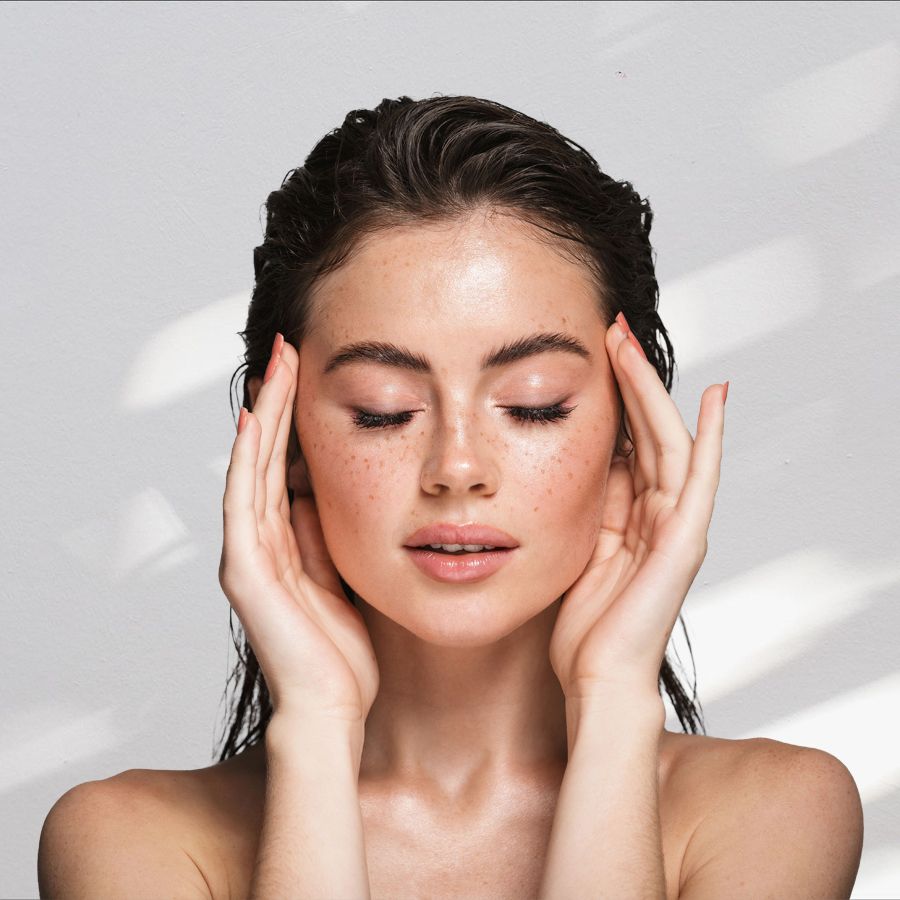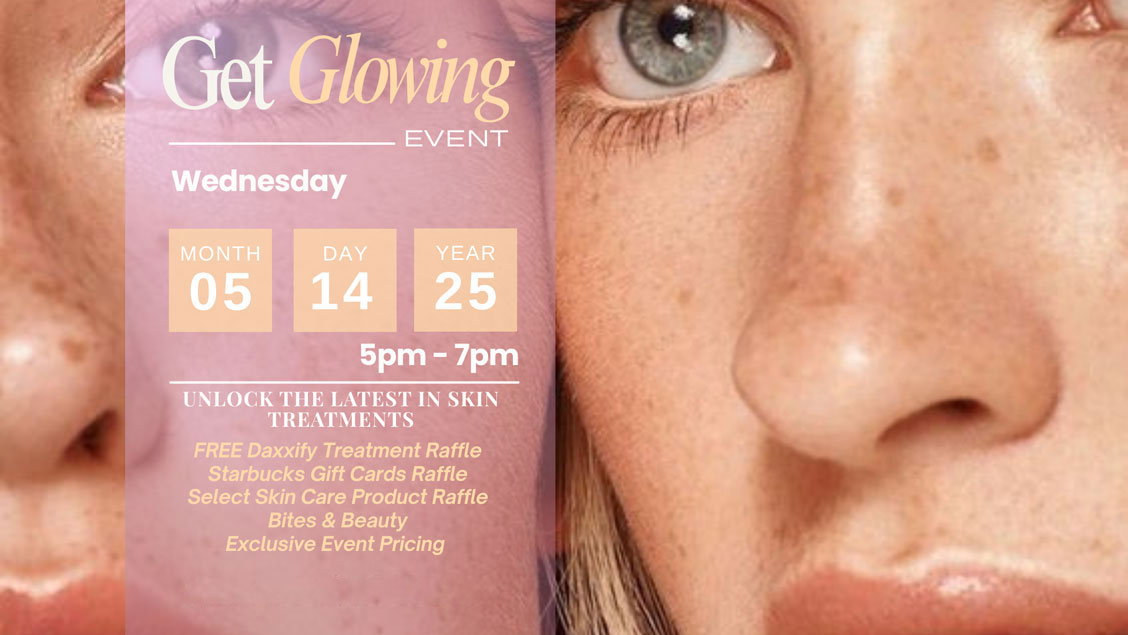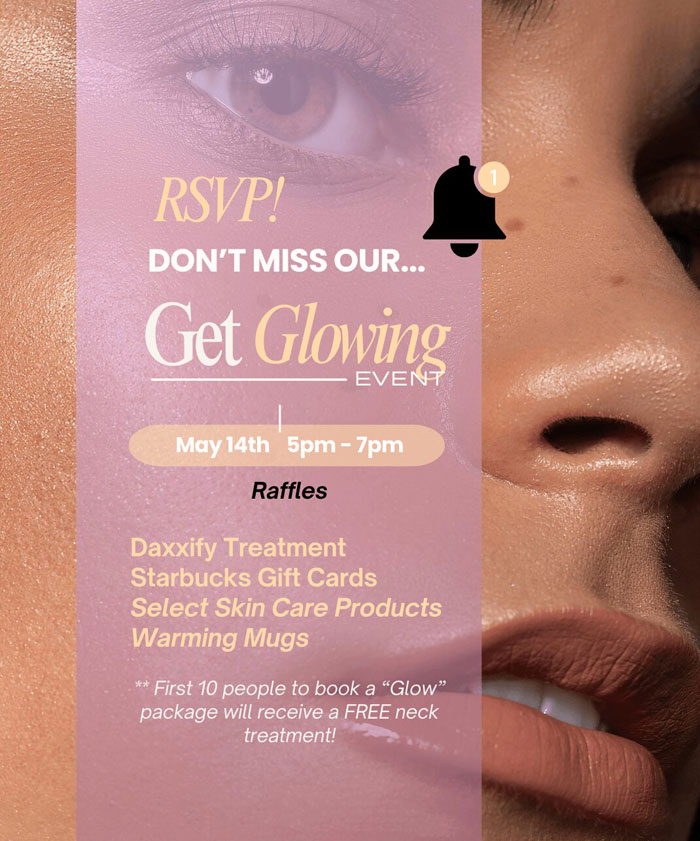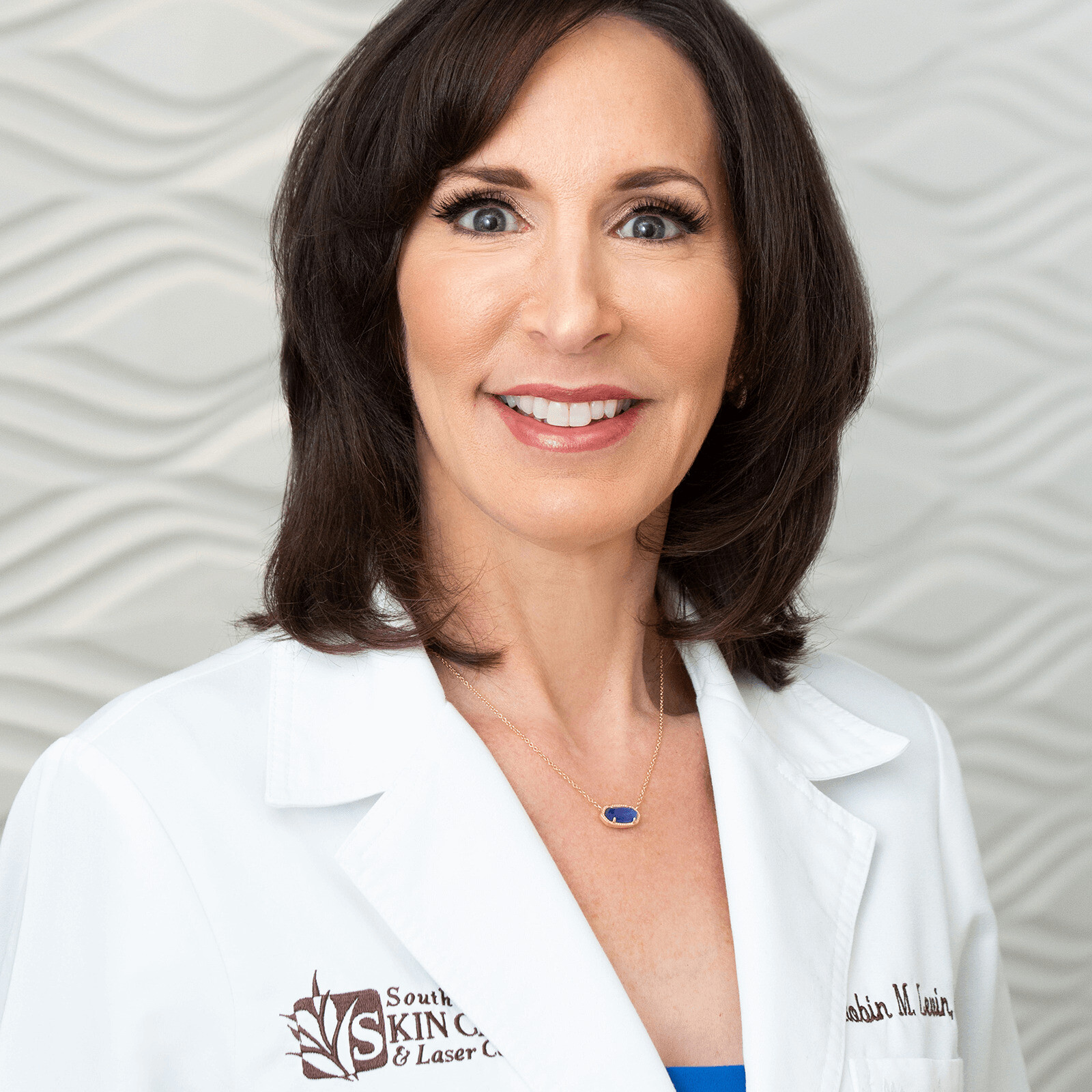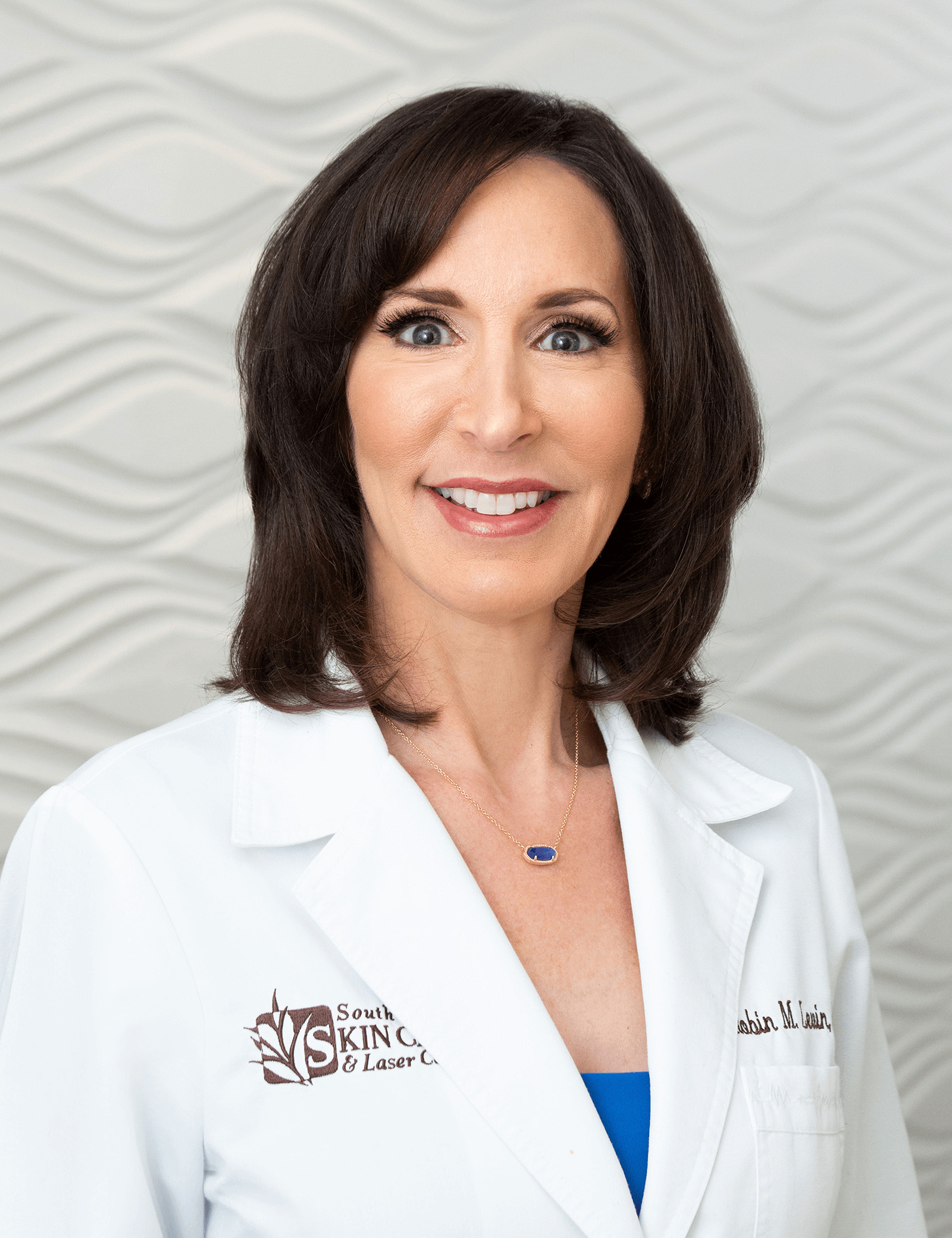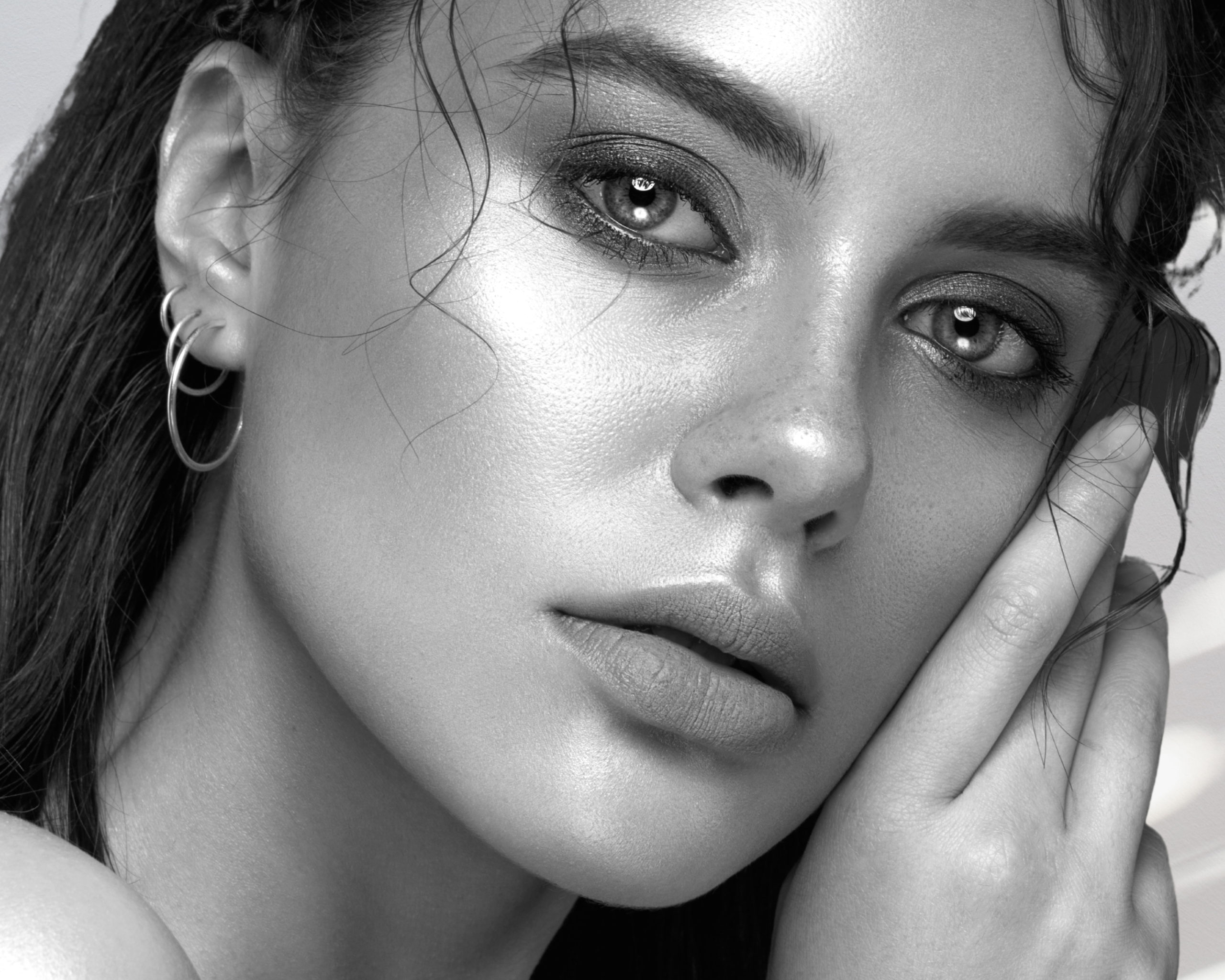- Home
- CLINICAL DERMATOLOGY
- Rosacea
Control Facial Flushing, Sensitivity, and Redness in the New Jersey Area
The team at South Jersey Skin Care & Laser Center routinely treats patients with rosacea from New Jersey and surrounding areas. Dermatologist Dr. Robin Levin prioritizes clinical dermatology and understands that due to the highly visible nature and physical discomfort of the condition, people who live with rosacea often experience a negative impact on their quality of life.
While the condition is not life-threatening, flare-ups can be embarrassing and distressing for sufferers. This can lead to anxiety, depression, low self-esteem, and social withdrawal. Fortunately, there are ways to manage flare-ups, as well as significantly reduce or hide the severity of breakouts.
Searching for effective management and treatment for rosacea in the New Jersey area? Dr. Robin Levin and the skin-focused professionals at South Jersey Skin Care & Laser Center would be happy to assist you. Inquire about a consultation online or call the practice directly at (856)-810-9888 to find out more.
What is Rosacea?
Women and men with this skin disorder are predisposed to persistent blushing or flushing more readily and frequently than other people. The telltale redness often appears in the center of the face and sometimes affects the eyes. More than 16 million Americans are estimated to be living with this chronic, inflammatory skin condition.
There are four main subtypes: erythematotelangiectatic rosacea (causes redness and flushing), papulopustular rosacea (produces acne-like symptoms), phymatous (creates a thickened, bumpy texture), and ocular rosacea (irritates the eyes and causes vision problems).
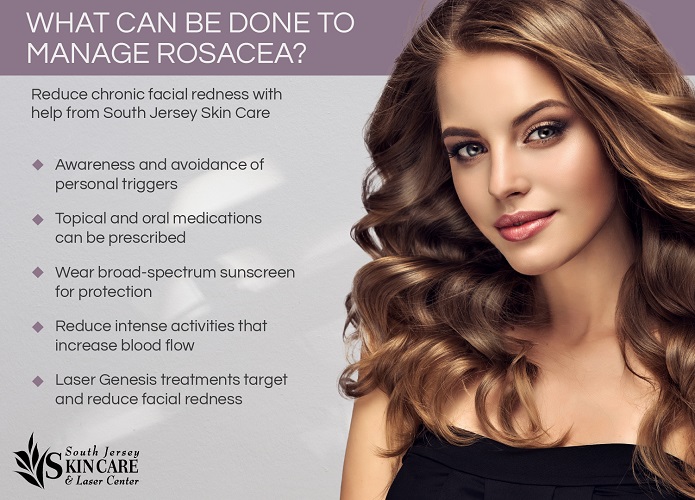
For the chronic redness of rosacea, New Jersey Dermatologist Dr. Robin Levin and her team offer several options to help manage the problem and reduce the risk of future flare-ups. They work with patients to identify certain foods and other triggers to avoid, prescribe eye drops and other medications, suggest sunscreen and other products to protect against damage and reduce redness, provide education on managing stress, and perform intense pulsed light treatments that target broken capillaries.
Symptoms of Rosacea
Each person’s symptoms are unique, but there are some universally recognized signs to watch for. Enlarged blood vessels usually indicate the presence of rosacea, as does a redness that gradually spreads over the nose, cheeks, forehead, chin, and even to the ears and chest.
This flushing can last for several minutes before resolving. You may also notice dry or rough patches, swelling, broken blood vessels, and skin that is sensitive, burning, or swollen.
Acne-like pimples and pustules sometimes appear, and the skin can be hyperreactive to stimuli.
Symptoms often occur cyclically, with breakouts slowing or vanishing after a few weeks, only to recur later.
What Causes Rosacea?
Rosacea occurs in both men and women, and in all age groups. While people of all races and skin tones can have the condition, being fair-skinned and of Northern European ancestry seems to increase a person’s risk of developing symptoms.
The exact underlying cause of rosacea has not yet been identified, but genetics, immune system abnormalities, certain skin mites, and gut bacteria are believed to be linked to the condition.
Some of the most common triggers for the condition include dairy products, spices and seasonings, hot foods or drinks, alcohol, and caffeine. Exposure to severe weather and temperature extremes are typically bad for rosacea. Additionally, heightened emotional states such as stress, anxiety, and anger can exacerbate the problem.
Treatment, Coping, and Support for Rosacea
When left untreated for an extended time, symptoms can become aggravated. There is currently no known cure for rosacea, but people who suffer from the condition can alleviate some of the most uncomfortable symptoms.
To better manage the disorder, you may need to make lifestyle and environmental changes, such as avoiding certain foods, drinks, medications, facial products, and activities that increase blood flow to the skin. We may prescribe topical medications, oral drugs, or eye drops. Patients may choose to combine these with measures such as using a broad-spectrum sunscreen, reducing stress, and engaging in low-intensity exercises. IPL laser treatment is a cosmetic option for improving skin color.
South Jersey Skin Care & Laser Center in New Jersey
Dermatology for You
South Jersey Skin Care & Laser Center is dedicated to providing a phenomenal experience for every patient. The team of professionals led by board-certified dermatologist and Philadelphia-area “Top Doc” Dr. Robin Levin is made up of skilled and caring professionals who make each patient a priority. Providing personalized care for South Jersey residents’ dermatology needs is a privilege Dr. Levin has been embracing for more than a decade.
South Jersey Skin Care & Laser Center is dedicated to providing a phenomenal experience for every patient. The team of professionals led by board-certified dermatologist and Philadelphia-area “Top Doc” Dr. Robin Levin is made up of skilled and caring professionals who make each patient a priority. Providing personalized care for South Jersey residents’ dermatology needs is a privilege Dr. Levin has been embracing for more than a decade.
Other Skin Conditions
The red blotches and other symptoms associated with acne, eczema, psoriasis, allergies, lupus, other inflammatory skin conditions—and even skin cancers—are often mistakenly identified and misdiagnosed as rosacea. Acne, for example, is a skin condition characterized by pimples, blackheads, whiteheads, nodules, and cysts, which are attributed to excess oil and dead skin cell buildup in the pores. These bumps are often accompanied by redness.
If you think you may have rosacea, we can properly assess your skin and medical history to determine the cause of your symptoms.
Dr. Robin Levin and the South Jersey Skin Care & Laser Center team can help New Jersey patients with rosacea find relief for their symptoms. To discover more about their treatment options, call (856)-810-9888 or fill out a contact form online.
*We are all different! Patient results may vary.


